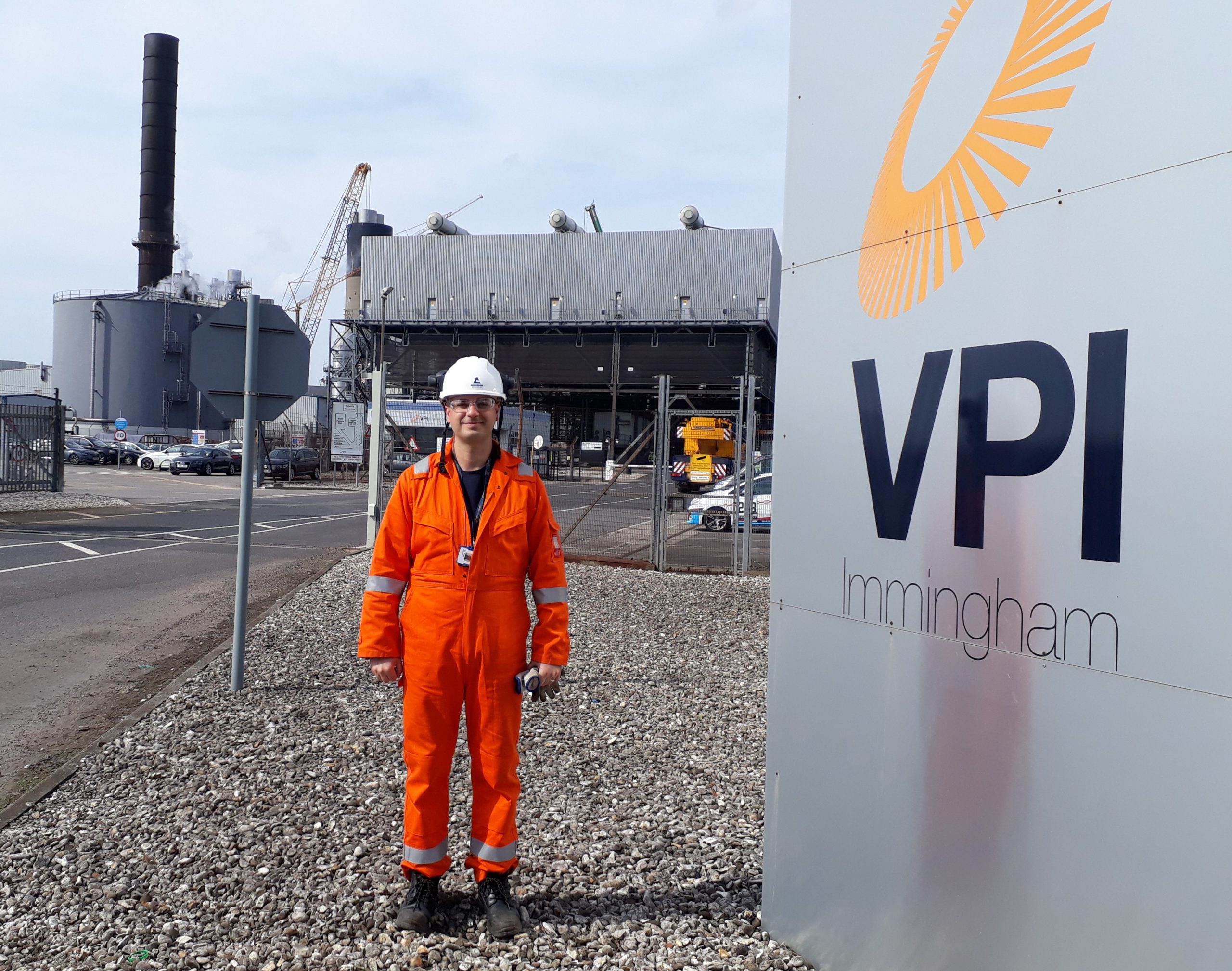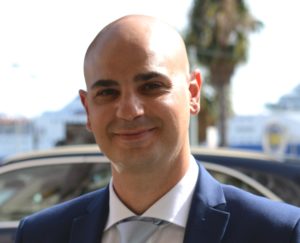 Back
Back

Igor Scalas spent several years in the Italian army before beginning a distinguished career in the crane industry. This is his Ainscough story.
I was born in Sardinia, and left home aged 17 in order to join the army. Like a lot of my future colleagues at Ainscough, my military service provided training that would prove to be invaluable in my later career.
I was in the army for six and a half years, including time spent as a UN peacekeeper during the Bosnian War. As part of this work, I spent some time managing the unloading of cargo from ships in Albania for many countries as part of the war effort. This gave me a good grounding in logistics and lifting, and by the time I left the army I was trained as a logistics manager.
I then spent time in Spain, followed by two years in Dublin. Two very important things happened around this period – I began my career as a crane operator, and I met my future wife.
I subsequently moved to Hull – where my wife is from and our home ever since. Now based in the UK permanently, I worked for some of the country’s most important infrastructure organisations – from Associated British Ports to British Aerospace.
At the latter, I did a lot of exciting work for organisations like Rolls Royce and the Red Arrows, but when their factory moved from the outskirts of Hull to nearer Manchester, it was time for me to move on too.
Initially, I worked for Baldwin Crane Hire. When I felt it was time for me to push on into a more challenging position, I knew exactly where I wanted to go – Ainscough Crane Hire. In 2015, I was welcomed on board by Derek Gow, who is now commercial director here.
Since joining Ainscough, a significant amount of my work has been at petrochemical refineries. Lee Sixsmith introduced me to a lot of people in this sector, and I find this work has a methodical approach that I enjoy.
Every four years, during an outage care is required to dismantle the refinery’s units for regulatory inspection, along with the overhaul of essential hardware and the installation of new equipment. I’ve now built a specialism in the sector and it’s really rewarding to be valued and trusted by people across the industry.
However, that’s not to say these operations are straightforward – far from it. Perhaps my proudest moment to date came at Amey-Cespa’s Allerton EfW site, which uses state-of-the-art technology to generate energy from the residual waste collected in North Yorkshire and the City of York.
Constructing a complex site like Allerton EfW meant combining and organising a number of different suppliers of plant hire and materials to meet the unique specifications of the build. I and my team proposed having a mobile tower crane present at the site. The main issue was that the location the crane needed to stand was at the base of a 28.5-metre concrete waste bunker.
With a Terex CC 2800-1, 600t crawler crane already positioned and rigged up on-site, we decided to use the crawler crane to lift and lower the mobile tower crane into the base of the bunker.
Once in situ, the tower crane could then carry out the necessary lifts to complete the construction before being lifted out again. After numerous CAD drawings, method statements, and the centre-of-gravity calculations had all been completed, the Heavy Crane Division’s crawler crane undertook the painstaking task of lowering the Liebherr MK110 mobile tower crane down into the bunker. With limited rigging space and just 1.5 metres of clearance on either side, the planning paid off and the mobile tower crane spent around ten weeks in the bunker before being removed.
This is just one example of how thinking outside the box can sometimes bring brilliant results that go above and beyond your client’s expectations. This is an approach I include in my other work too – whether that’s bridge installations or lifting into place tunnel boring machines that are helping to create the tunnels for HS2.
In order to be successful in this job, it’s really important to remain curious and open to learning. When I start a project and am undertaking the drawings and method statement, it would be reasonable for me to delegate it at that point to our brilliant crane supervisors. But, by going to the site myself, I can continue to find out more about what can be achieved. The crane operators can often provide invaluable advice too and suggest something I hadn’t thought of.
I’m always happy to share my insights with my colleagues, who will often call me if they’re unsure of something. In turn, I’ll pick up the phone and speak to my line manager Dave Baxter if I can’t quite put my finger on a solution. Ultimately, everything we do at Ainscough is a team effort.
It’s this team effort that helps us deliver the excellent, safe results we do and why we are so respected across the industry.
Looking ahead, I want to share the knowledge and skills I’ve gained with more of my younger colleagues in order to help them develop their careers.
My career to date has been all about stepping up to challenges.

That includes having to learn English when I was 17 never having spoken a word of it before, the tests I faced in Bosnia, or coming up with inventive and safe crane solutions for clients.
Challenges can be daunting, but they’re to be overcome with patience and an open mind. I take the same approach to a challenging method statement as I do helping my 12-year-old daughter with her maths homework. If I don’t understand something, I step back and try to learn – both in terms of deciding what crane configuration to use and teaching my daughter about fractions!
It’s this mindset that’s enabled me to develop such a rewarding career at Ainscough, and over the coming years, I want to do more to help my colleagues at this brilliant business achieve the same.